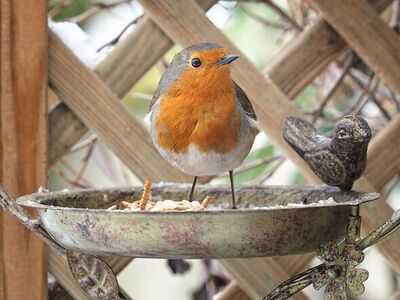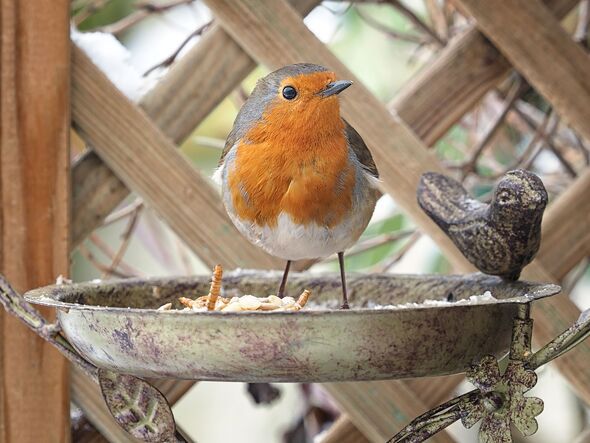
It's one of the most important time of the year for all sorts of birds in our gardens - as sparrows, starlings, blackbirds, robins and many other British favourites feed their freshly hatched young in the summer months.
And to help birds during the summer months, gardeners are being urged to leave two fruits out on lawns as well as on bird tables. According to the RSPB, gardeners should leave out a variety of different foods for different birds at different times of year, including everything from sunflower seeds to uncooked oats, suet and mealworms. And other garden experts back up how important summer bird feeding is.
According to CJ Wildlife, birds need more energy in summer to help feed their young, and it's no longer the case that people should only leave food out in winter or spring.

The experts said: "Not long ago, many believed that garden birds should only be fed during the winter months; however, long-term studies have shown that offering food to garden birds year-round is beneficial, supporting declining species and allowing you to learn more about your garden visitors.
"Feeding wild birds during the summer helps busy parents top up feeders and provide all the natural food their young need. Well-stocked bird feeders can be a lifeline for young birds as they learn how and where to find food locally.
"Bird populations are at their highest in the summer, so a regular supply of quality food helps birds get the energy they need amid increased competition for natural foods."
But if you want a quick and cheap way to help birds, you can leave out two fruits - apples and pears, sliced up and left on the lawn or on a bird table or feeder.
The RSPB says: "You can put outleftoverssuch as dried fruit, or fruit such as apples and pears. Don't use anything mouldy or salty, though, and if you have a dog don't put out dried fruit - vine fruits, such as raisins, can be toxic to them.
"Fruit, especially bruised apples and pears, will be popular with thrushes and blackbirds."
Different birds feed in different locations - some prefer to 'ground feed' instead of coming to a bird table.
The RSPB says: "Blackbirds are too large to access most hanging bird feeders. To attract them to your garden, it's best to put out food on a bird table or scatter it on the ground."
The same is true for sparrows, dunnocks and doves, which also prefer ground feeding, though they usually eat seeds.
If leaving food on the ground, though, make sure it's in a wide open location, away from hedges and anywhere a cat could hide. Birds will not feed where they cannot keep themselves safe from predators like cats, or could be exposed to risk if forced to feed near cat hiding places.
If you do use a bird table, be sure to clean it regularly with hot soapy water if it's flat. This is because the RSPB recently pulled flat, open bird tables from sale while it investigates whether these types of feeder could be contributing to the spread of disease.
The RSPB added: "Bird feeder hygiene is very important. Brush off debris every time you put out fresh food and scrub feeders with mild disinfectant solution weekly."